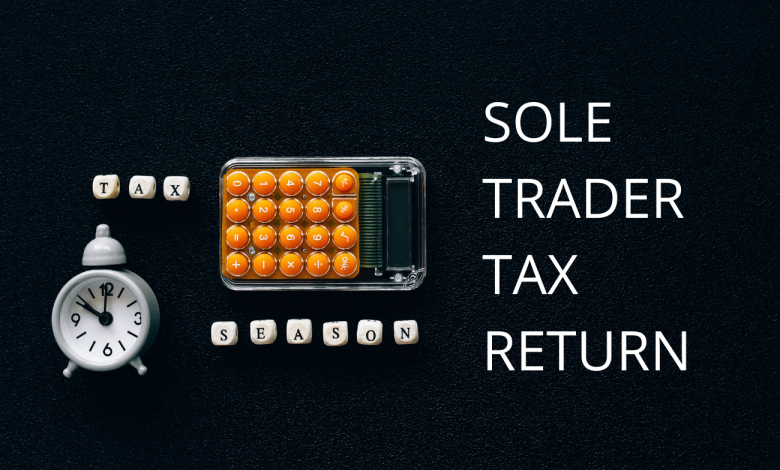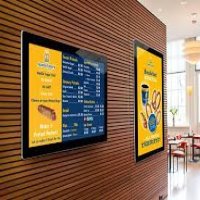
Of all the four small business structures in Australia, a sole trader is a cheapest and simplest structure where an individual has complete control over the business. However, it also means that whenever you choose to run your business as a sole trader, you will be held legally responsible for all business aspects like contracts, taxes, etc. You cannot share debts and losses with other individuals. However, if you want someone to look after your business finances, you can keep a sole trader accountant. Read this post to get a clear idea about sole trader tax return.
Key Tax Features of a Sole Trader
While operating your sole trader business, you can do the following things.
- You can apply for an Australian Business Number, which you can use for all business dealings.
- If the business’s annual GST turnover is at least $75000, make sure you register your business for GST (Goods and Services Tax).
- As a sole proprietor, you can pay tax at the income tax rates at which individual taxpayers pay their taxes. It will also help you use the small business tax offset.
- It will be good to keep some money aside to pay the income tax when the financial year ends. Usually, you have to pay quarterly PAYG (Pay As You Go) instalments.
- You can claim your tax deduction for any personal super contributions.
However, keep in mind that you cannot claim deductions for the money you have drawn from your sole trader business. These drawn amounts are not treated as wages by the ATO.
Sole Trader Tax Return: a Detailed Overview
A tax return must be lodged if you currently operate your business. It applies even if your business has not generated any profits. Keep in mind that there is no threshold business income value for lodging an income tax return. So, you have to lodge it even if your income stands at only $1.
What you must include in your return and how you should lodge it will depend on the type of business structure.
A tax return must be lodged even if your business income is under the tax-free threshold when you run your business as a sole trader. Because you are the only owner here, you can:
- Use your individual tax file number at the time of your income tax return lodgement,
- Report all the income under the section for business items in your individual tax return to show your business expenses and income.
A unique feature of sole trader businesses is that they do not involve separate business tax returns.
What Things Should You Report?
In your sole trader tax return, you have to report a range of things, including:
- Business income after deducting the claimable expenses
- Dividends and rental income after subtracting claimable expenses
- Salary or wages
If the personal services income (PSI) rules apply to you, you must also include that information in the form.
The best thing is that you will not need to calculate the tax you have to pay. You will only need to lodge and issue an assessment, and the ATO will do all the work for you.
The ATO will automatically credit your PAYG instalments if you have paid them during your income year.
How Can You Lodge Your Tax Return?
You can do it in three ways.
- You can do it online with myTax.
- You can hire a registered agent, and they can lodge it for you.
- If you are not comfortable with the online method, you can do it on paper.
Lodging with the help of an agent and online are the two fastest ways to lodge a tax return. But in the case of a paper return, you will need to wait for at least 50 days to get it finalised. If you choose paper lodgement, contact the ATO.
When Should You File Your Tax Return?
When you choose to file your tax return via myTax, your due date will be 31 October. Hiring a registered tax agent will help you get an extended deadline.
What Deductions Can You Claim in Your Tax Return?
Like all business owners in Australia, a sole proprietor can also claim specific business tax deductions against most expenses incurred to run the business. However, you must make sure that these expenses are directly related to your assessable income. When you include all the deductions correctly, you better your chances to save thousands. So, you must take extra care for this purpose.
Some of these common tax deductions include:
- Business travel costs, including taxi, bus, and train fares
- Vehicle expenses, such as fuel and oil costs, loan interest or lease payments, insurance premiums, servicing and maintenance costs, and registration costs
- Costs related to repairs and maintenance of tools, machinery, and office premises
- Home office costs, such as operating expenses (phone, cleaning, and electricity), and occupancy costs (insurance premiums, mortgage interest, and council rates)
- Personal superannuation contributions for your employees and yourself
- Health insurance premiums
- Expenses related to stationeries, banking and accounting, advertising, relevant courses, work uniforms, and subscriptions
- Depreciation of items such as furniture
- Prepaid expenses related to services and items to be delivered in the following financial year
- Bad debts
Remember that you cannot include any personal expenses in your sole trader tax return. Now, if you use something like your car or home for both private and business purposes, only the business-related part of your costs can be claimed.
For example, of the total time you have used your mobile or landline for office purposes, 60% is for business purposes. In that case, you will be allowed to claim only 60% of your total phone bill.
How Can a Professional Accountant Help You?
Appointing professional accountants near me will help you keep track of all these expenses, which will ease the process of filing your tax return. Accountants now use cloud-based accounting software to regularly update activity statements and invoices, which helps them stay organised.
Just type ‘sole trader accountant near me’ on your Google search bar, and you can find some of the best professionals in your area.






